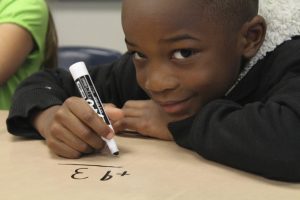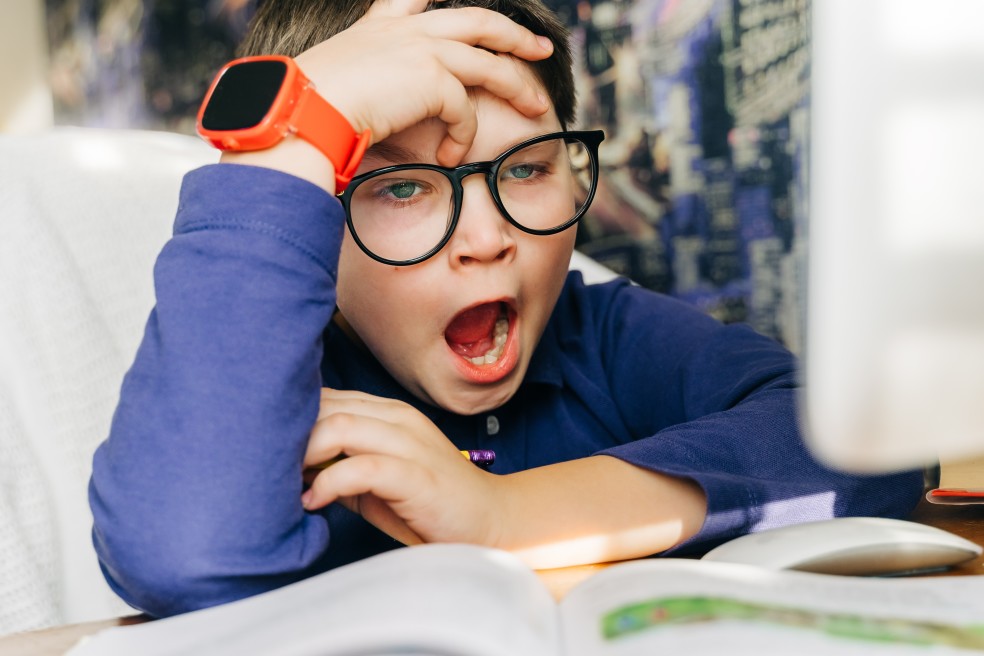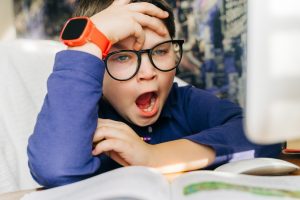Help Your Teen Transition From High School to College
 If you are the parent of a graduating senior who plans to attend college, you might feel you have done all you can to prepare them. Or, you might wonder whether your teen is ready for the challenges of college and independent living. The end of senior year can be filled with joy, but also with worry.
If you are the parent of a graduating senior who plans to attend college, you might feel you have done all you can to prepare them. Or, you might wonder whether your teen is ready for the challenges of college and independent living. The end of senior year can be filled with joy, but also with worry.
“It’s particularly normal at this life stage to be experiencing insecurity, fear, and concerns about the present and the future,” says Sharon Saline, PsyD, who specializes in families of children with ADHD. Read more ›


 Dyscalculia (dis-kal-KYOO-lee-uh) is not as well known as dyslexia, but both are learning disabilities.
Dyscalculia (dis-kal-KYOO-lee-uh) is not as well known as dyslexia, but both are learning disabilities. 
 A good kindergarten experience sets kids up for success in school and into adulthood. Students in
A good kindergarten experience sets kids up for success in school and into adulthood. Students in 
 As pressure to raise scores on standardized tests has trickled down to the lower grades, kindergarten and even pre-kindergarten classrooms have focused more on academic skills. But debating whether a kindergarten or preschool classroom should be play-based or academic is the wrong question, experts say.
As pressure to raise scores on standardized tests has trickled down to the lower grades, kindergarten and even pre-kindergarten classrooms have focused more on academic skills. But debating whether a kindergarten or preschool classroom should be play-based or academic is the wrong question, experts say. 
 Auditory processing disorder (APD) is a hearing problem characterized by deficits in how the brain processes auditory input. Children with APD struggle to make sense of what they hear — a symptom that is easily mistaken for other conditions and learning disabilities. This overview of APD clarifies common misconceptions and offers targeted strategies of support.
Auditory processing disorder (APD) is a hearing problem characterized by deficits in how the brain processes auditory input. Children with APD struggle to make sense of what they hear — a symptom that is easily mistaken for other conditions and learning disabilities. This overview of APD clarifies common misconceptions and offers targeted strategies of support. 
 Nonverbal learning disorder (NVLD), also known as nonverbal learning disability, is a neurological condition which typically emerges during childhood but can persist through adulthood. It is marked by one or more of a set of cognitive, and sometimes social, difficulties experienced by children of otherwise average or superior intelligence, such as visual-spatial struggles and motor-skill deficits. Some people diagnosed with NVLD also have trouble comprehending nonverbal information such as body language and facial expressions.
Nonverbal learning disorder (NVLD), also known as nonverbal learning disability, is a neurological condition which typically emerges during childhood but can persist through adulthood. It is marked by one or more of a set of cognitive, and sometimes social, difficulties experienced by children of otherwise average or superior intelligence, such as visual-spatial struggles and motor-skill deficits. Some people diagnosed with NVLD also have trouble comprehending nonverbal information such as body language and facial expressions. 
 One of the most important aspects of learning that might be least understood is human memory. We are tasked with passing on skills and knowledge to students—it’s the most important aspect of our job. Yet how many educators have earned degrees and teaching certificates without any mention of how memory works?
One of the most important aspects of learning that might be least understood is human memory. We are tasked with passing on skills and knowledge to students—it’s the most important aspect of our job. Yet how many educators have earned degrees and teaching certificates without any mention of how memory works? 
 Millions of children spent months, even more than a year, attending school virtually from kitchen tables, bedrooms and laptops during the pandemic.
Millions of children spent months, even more than a year, attending school virtually from kitchen tables, bedrooms and laptops during the pandemic.

